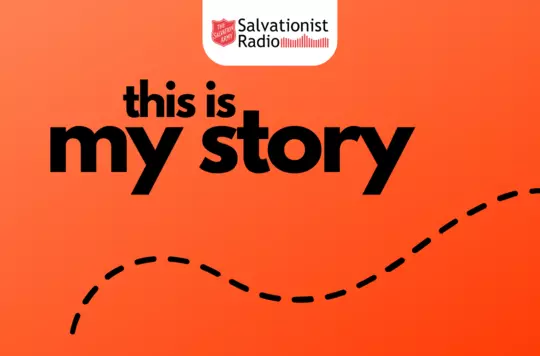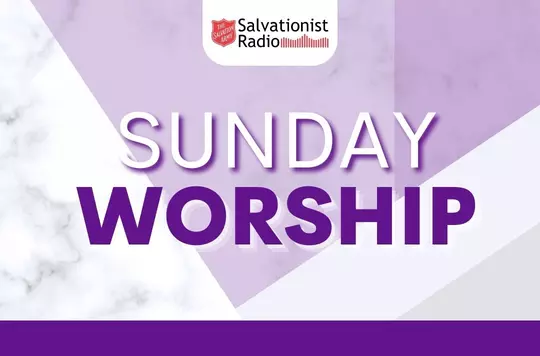7 August 2023
God's goodness: Pass it on
Captain Berri McKenna
Captain Berri McKenna considers how receivers should also be transmitters of God’s goodness.
Key text
Have you ever found your mouth saying something while your brain simultaneously thinks: ‘Oh, no! I’m sounding like my mum or dad?’ Whether we like it or not, the experiences and habits we grow up with shape us. This idea is in the background of Psalm 145 as, with growing excitement and momentum, the psalmist conveys the powerful ways in which one generation can influence another by teaching them to praise God.
Pause and reflect
- What are some of the best things that you’ve been taught by a previous generation?
Old Testament scholar Walter Brueggemann says, perhaps with tongue in cheek: ‘Psalm 145 may be regarded as a not very interesting collection of clichés.’
At first glance, the psalm might look like a list of quite vague praise phrases that describe characteristics of God and generic reasons to praise him. However, when we dig under the surface, we discover the psalmist is using his own experience of God. He reminds us to consider God’s faithfulness in the past, to cling to God’s promises in the present and to pass on to others the knowledge of the greatness of God.
Psalm 145 is an acrostic based on each letter of the Hebrew alphabet, starting at the beginning and building to the end. It harks back to Creation – the ‘wonderful works’ of God (v5). In speaking of God’s ‘awesome works’ and ‘great deeds’ (v6), its first listeners would recall a seminal moment in their founding story – the Exodus – when God in ‘abundant goodness’ (v7) delivered his people from captivity.
A key part of commending God’s works to someone else, it seems, involves looking back. I once heard it said that we often glimpse God’s faithfulness in the rear-view mirror of our lives. As we look back over our lives, we can see God’s hand at work in places and at times that we didn’t recognise. Similarly, if we’re looking for reasons to praise God, we can be inspired by the stories of how he has worked in previous generations. Doing so adds fuel to our worship and our longing for God in the present.
Pause and reflect
- When have you spotted God’s faithfulness after looking back?
- What past work of God in your life are you thankful for today?
For the psalmist, the work of God isn’t only a past event but is also a present experience. Much of the psalm is written in the present tense. It gives God praise for the present reality of his goodness (see v9), his righteousness and faithfulness (see v17), his nearness to those who call on him (see v18) and his constant watching over those who love him (see v20). For the psalmist, being able to commend the works of God doesn’t simply stem from what he has heard about God in the past but rather flows from his ongoing experience.
The psalmist points out that life isn’t always easy. As well as citing many blessings, he also draws on life’s struggles – feeling ‘bowed down’ (v14) and weighted by the cares of life, or feeling the desperate need to cry out to God (see v19). Even in difficulties, the psalmist calls people to worship God, irrespective of life’s storms. As one motivational poster puts it: ‘Life is not about waiting for the storm to pass but learning to dance in the rain.’ There’s some truth in that for the psalmist as he calls people to worship God whatever season they find themselves in.
One interesting way this happens is seen in the way the psalm begins with the first-person singular – the psalmist’s individual praise to God, ‘I will exalt you’ (v1) – but ends with the plural – a call for every creature to praise God ‘for ever and ever’ (v21). In other words, life’s struggles become a shared, rather than an individual, experience. As each person and generation worships God together, they learn to support one another.
Pause and reflect
- What is your present experience of God?
- In difficult times, how have other people helped you to worship God?
- To whom might you reach out to help them worship God today?
As well as looking back and around, the psalmist looks into the future – into ‘for ever and ever’. He declares: ‘Your Kingdom is an everlasting kingdom, and your dominion endures through all generations’ (v13).
This is incredible. The God who was faithful to our ancestors and is faithful to us will also be faithful to the generations to come. It’s a blessing, but with this blessing comes a responsibility. Those who have encountered this faithfulness have a sacred responsibility to bear witness to it to all the world and to teach others to praise God.
This is a challenging thought. As much as you might have found yourself saying ‘I’m sounding like my mum and dad’, one day someone else might find themselves noticing that they are sounding like you. What kind of words will you have shaped them to say? What things will you have commended to them?
Pause and reflect
- How are you commending God’s goodness to others?
- How are you learning from other generations about what it means to praise God?
Bible study by

Captain Berri McKenna
Learning and Support Tutor, William Booth College
Discover more

Deborah reflects on how God has changed and transformed her heart during her time at William Booth College.

New ways to tune in to the online radio station for everyone linked to The Salvation Army.


